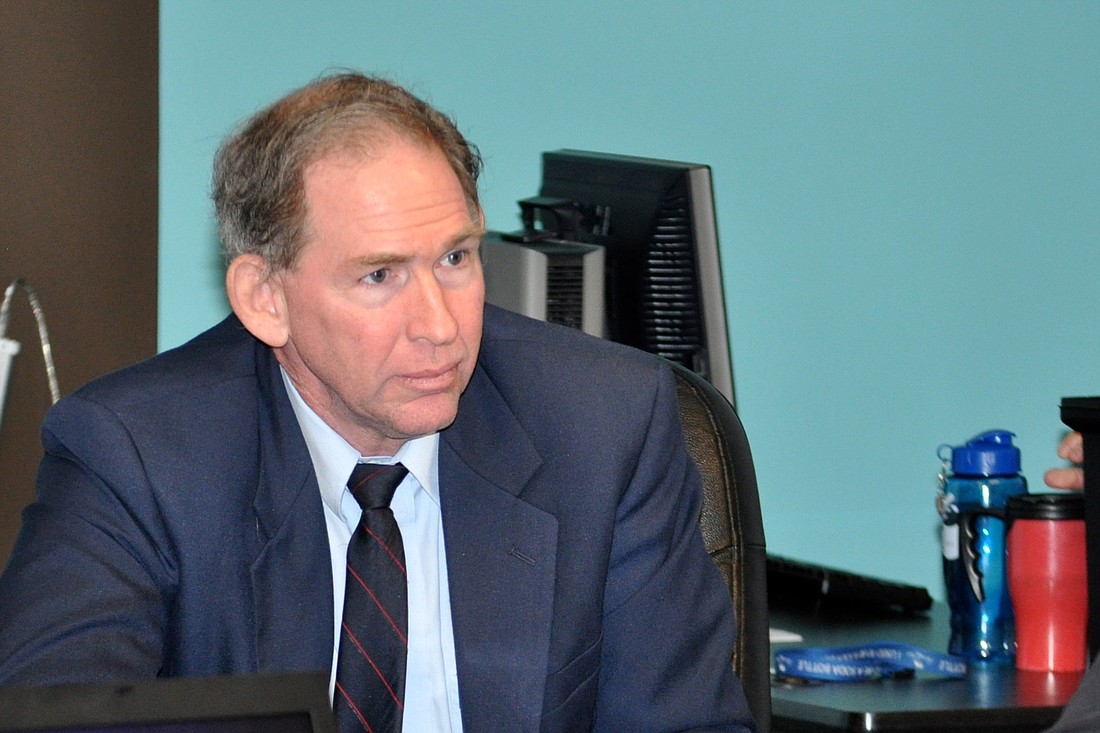- May 3, 2024
-
-
Loading

Loading

Supervisor of Elections Kimberle Weeks is now speaking with Palm Coast staff to negotiate an agreement for the city’s elections, but the city, aware the dialogue could break down, is preparing for its own elections in case no agreement emerges from the talks.
Of the city’s two options — having Weeks hold the election, or holding a stand-alone election — “option one is by far the preferable option,” Palm Coast Mayor Jon Netts said at a City Council workshop April 8. “But we must be sure that there will be an election in Palm Coast.”
It takes time to prepare for an election.
“I don’t want these good faith discussions to go on, and then all of a sudden we wake up one morning and find out there’s not enough time to put an election together,” Councilman Bill McGuire said at the workshop. “I think we should proceed down both roads until we’ve got something signed in our hand.”
That’s what the city is doing, City Manager Jim Landon said.
Weeks has started speaking with City Clerk Virginia Smith, he said, to iron out the two major issues that kept Palm Coast from signing an interlocal agreement Weeks sent to the city April 17.
One revolves around polling places. The interlocal agreement Weeks sent would have required the city to “assist the Supervisor, if requested, in locating emergency/alternative polling locations within the City that the Supervisor shall approve, should any polling locations owned or managed by the City become unavailable, or be deemed by the Supervisor to be inadequate for any reason,” language the council felt would allow Weeks to demand use of any city-owned location — including the city’s large conference room, which she has demanded in the past — without sufficient cause.
Weeks has said verbally, Landon said at the meeting, that that provision would only come into play in an emergency that makes another polling location unusable. Landon said the city would be glad to help her find an alternative location in such a situation.
The other sticking point was that the interlocal Weeks sent restricted the ballot only to the two city council seats up for election.
That could be a problem, Palm Coast Mayor Netts said at a meeting April 1, if a referendum to eliminate red-light cameras were to qualify for the ballot, or if a council member were to die before the election, leaving another open seat.
But Weeks said in an email to the city that those issues could be dealt with later, if they arise, in an addendum to the interlocal agreement.
“It makes no sense to me to do an addendum when you could just add language,” Landon said at the April 8 meeting, “but she said that it’s okay to add, so maybe we need just a little tweaking of the language to make that clear.”
If there’s no agreement, though, the city will have to go it alone.
If it came to that, Smith said at the meeting, the city would cut costs on poll workers by having a single polling place, and would use paper ballots counted by hand. Still, the costs would add up to $40,000-$50,000 for each of the city’s two elections, the primary and the general, for a total of $80,000 to $100,000.
“Elections are very, very expensive,” Smith said. Training poll workers, for instance, costs about $2,500 a day. Printing 60,000 ballots, the number required for each election, would cost about $17,000.
City elections held in 2011, with six polling places, cost about $60,000 for each election, Landon said, but turnout for the elections, held as stand-alone elections on an odd year, were low: just 10% of eligible voters cast a ballot.
“We all agree for reasons of what is best for our residents that the combined election is far preferable — ease of voting, simplicity, so on and so forth,” Netts said. “If circumstances force us to go to this alternative, at least, from what I see, it won’t be any more expensive. From a fiscal point of view, we’re still ahead of the game compared to 2011.”
But Councilman David Ferguson said that despite the issues with Weeks’ proposed interlocal agreement, signing it would be better than holding a separate election.
“I think it’d be wise to choose the lesser of two evils, and that is to make the agreement happen — whatever it takes — rather than to consider this path of a manual count, because I don’t think anybody wins in that regard,” he said. “If for some reason the supervisor insists that no changes be made, I think that’s the lesser of two evils than to go down his other road.”
In order to hold a stand-alone election, Smith said, the city would need to order ballots from the printer by the last day of the candidate qualifying period, June 20.
But the city can’t wait that long to start preparing.
“We feel like that drop-dead date is already here, and we need to proceed with those alternatives,” Landon said. “Until we have something signed, we have to move forward with this.”